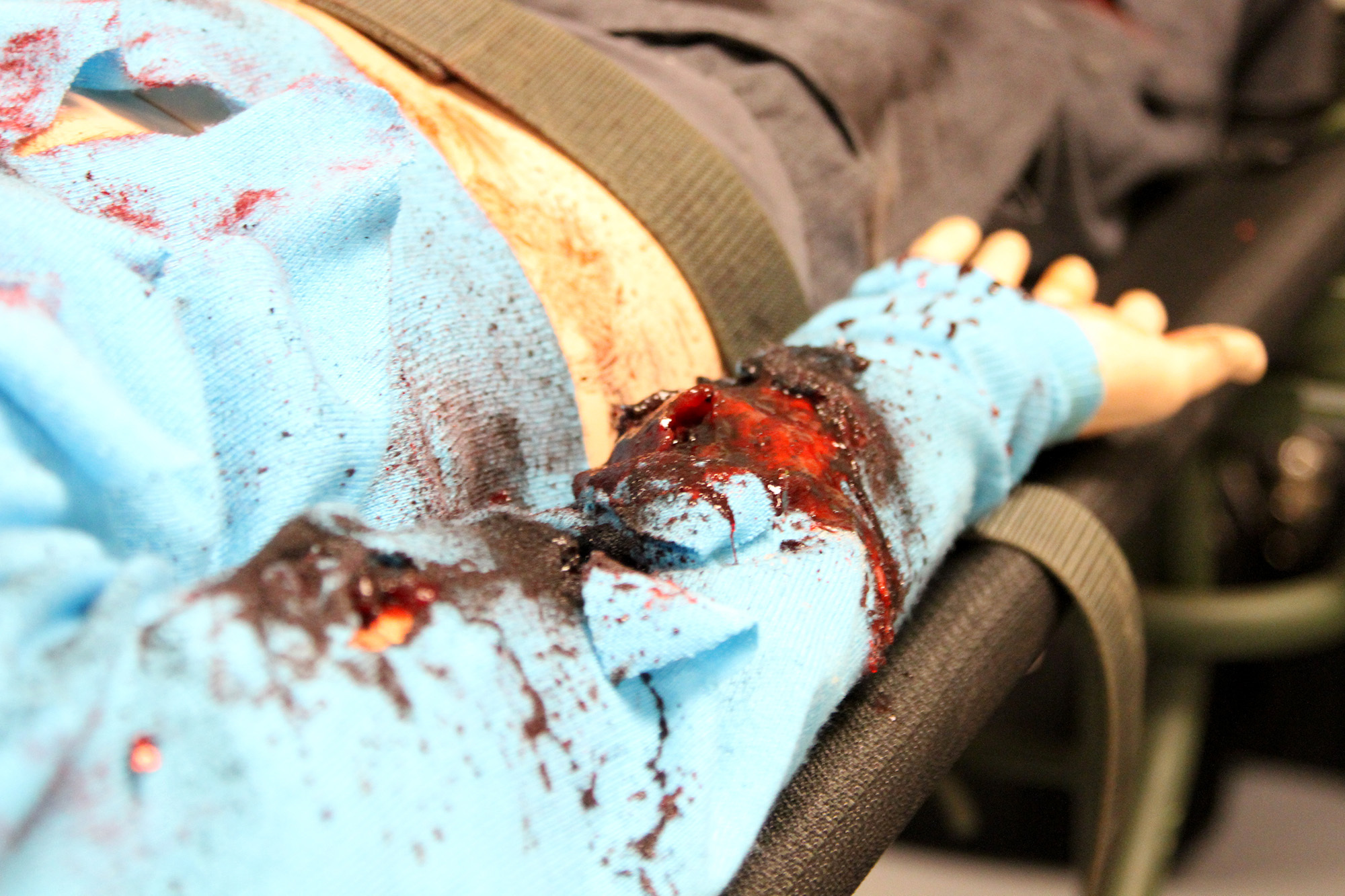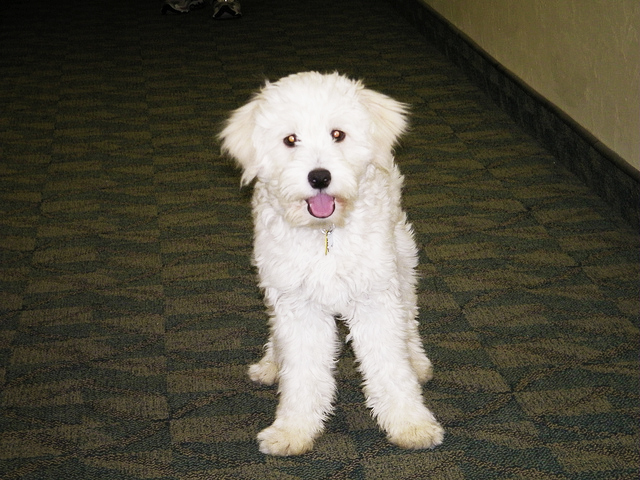by Ellie Campbell
Mia takes her crash-test dummy and turns it over. The auditorium is only half full, her plastic victim remarkably pliant. There are fifteen participants in the class and a team of trainers. Some say they were there on the day of the attack, others say nothing.
The dummy has been injured. Hit by a car. The students have to stave off its bleeding by plugging a gouged-out wound.
The trainer yells, “Grab anything you’ve got, take it off, stuff it into the wound.”
The trainer has a solid heft to her, the kind you’d trust to lift you to safety from the middle of a busy road.
“Don’t worry if they scream at you.” She looks directly at Mia. “It’ll hurt them, but you’re doing them good. And don’t worry about sterilizing anything.”
The trainer moves around the room, giving them permission to act.
“Just get in and stop the bleed. We’ll clean it out. That’s protocol at any hospital. Just. Stop. That. Bleed.”
Mia pulls off her sneaker and throws it to the ground so she can get at her sock. Everyone’s moving fast, tying, pressing, helping.
“Don’t be afraid to push hard on that wound,” the trainer calls out. “You’re saving their lives.”
Mia conjures the sound of a scream, to steel herself to work under real conditions.
But the scream isn’t the stuff of her imagination. It’s real. She grips her sock with both hands and uses her entire body weight to shove it in, deep as it can go. I’m not just standing here, she thinks. As she works, the scream fills her head. Can’t you all hear that? She wants to ask. It’s so loud. At what point does it shift from the scream of the woman she stood next to on that sidewalk and into her own. Were they screaming together? It was possible. Who wasn’t screaming that day? That grey-haired woman with the purple velvet coat was the first the van struck, and her blood pooled on the sidewalk, reaching the restaurant’s doorway.
There are moments, though never whole hours, where Mia finds distraction. Classical music, never her thing, finally gets through. It is music she can sit with, music without words to muddle her, and for seconds at a time, she isn’t in the present or the past. But then she returns to that purple coat. She imagines leaning in, helping, holding a hand. She gifts that woman a valiant gesture, a kind word, a better version of herself.
In the days after, Mia watched the news, shamefully, looking for herself. A news network was sure to cover the bystanders who weren’t first responders or brave or heroic or just downright lucky. Months later, Mia still scours news sites for her own photo, certain to be outed, no better than a rubbernecker.
But the mannequin’s closed eyes offer Mia no admonishment. They are just there, inert. She breathes in this blank canvas and smiles at this thing offering atonement. The woman in the purple coat was called Sarah. Mia presses hard on the wound and a large dent starts to form in the plastic. The mannequin is plastic but also real, something she can touch. Something tangible that gets her out of her own head. She clings to it and tells herself she is momentarily powerful and good, that she could do something. Next time.
Ellie Campbell is a media producer and writer. She has been published in a number of Australian literary magazines. She currently calls Toronto home. Follow her on Twitter at @ecwyllie.


